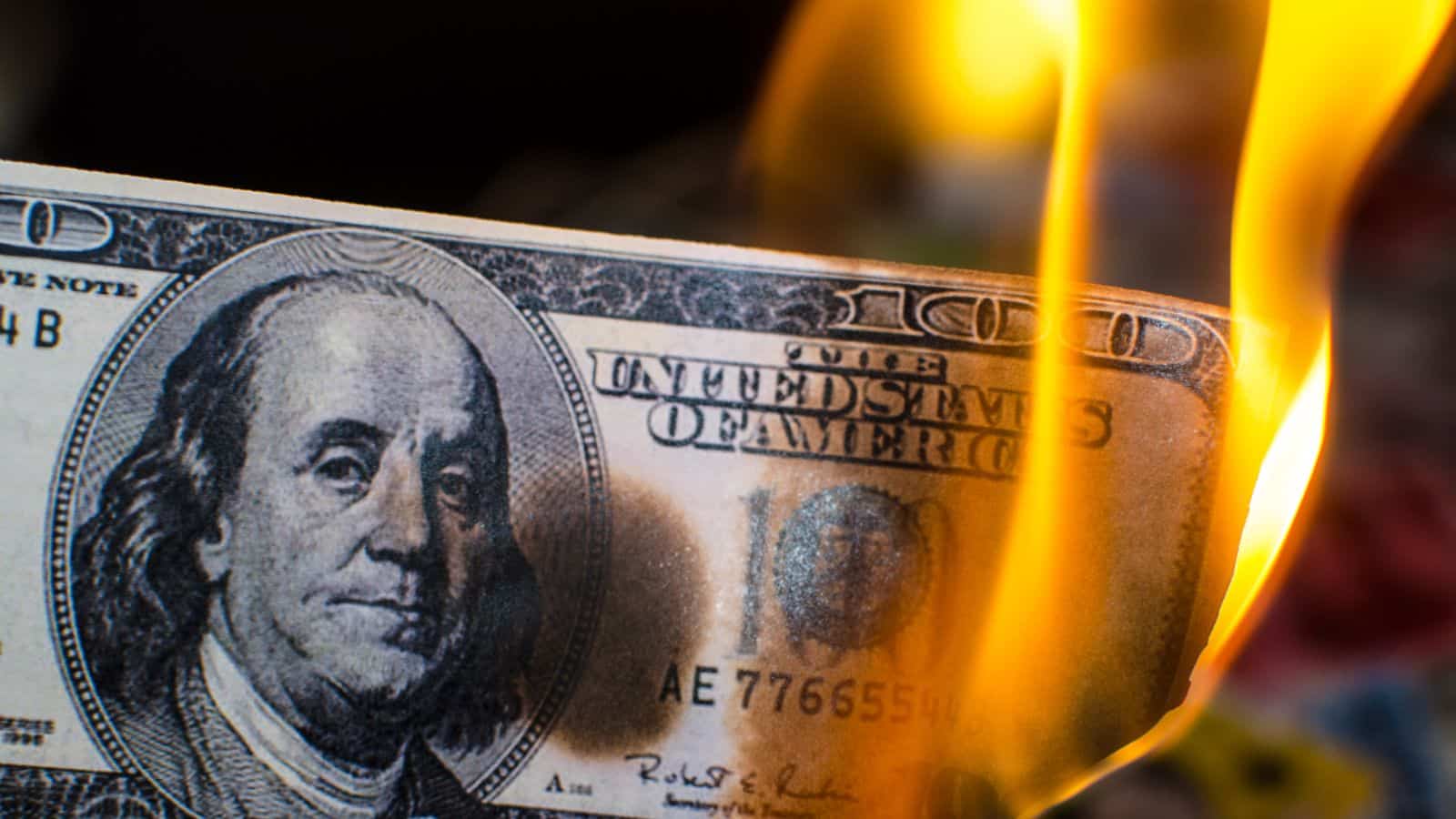Despite having less money, there are things poor people spend more on than rich people. Stay with us as we explore 17 of these things and offer practical advice on how to avoid them.
Expensive Habits

Expensive habits like drinking alcohol, smoking, or splurging on daily gourmet coffees can quietly stall financial stability. Calculations by Smokefree show that it could cost about $14,000 a year to smoke a pack a day. The immediate gratification these habits provide masks their long-term cost implications, making it challenging to break free.
Fast Fashion

The fast fashion industry thrives on the continuous cycle of buying cheap, trendy clothes, which is a recipe for disaster if you’re trying to save money. Earth.org reports that “the number of times a garment is worn has declined by around 36% in 15 years,” which is unsustainable for consumers and the environment. The low upfront costs can be enticing, especially for those on a tight budget, but the hidden costs and poor durability result in a higher price over time.
High-Interest Debt

Many poor people aren’t aware of the dangers of payday loans and credit cards with high APRs. They also often lack knowledge about negotiating lower interest rates or consolidating debt. This can lead to irresponsible borrowing, where they pay far more than they thought they would.
Expensive Convenience Foods

Pre-packaged meals tend to cost more than cooking at home, but most poor people are time-poor and can’t always find time to cook. This means they miss out on both the health and financial benefits of meal planning.
Lottery Tickets

Buying lottery tickets might seem like a small indulgence, but the low chances of winning combined with the long-term cost of regularly buying them can significantly impact one’s finances. Instead of relying on luck, a more reliable financial strategy is to invest these small amounts or learn a higher-paying skill.
Extended Warranties

Extended warranties often come with a high price tag and limited benefits. In many cases, the cost of these warranties outweighs the benefits, as the likelihood of needing expensive repairs during the warranty period is low for many products. A better strategy might be to set aside a savings fund for repairs or replacements when needed.
Brand New Technology

The desire to be seen with the latest technology can be tempting, but the premium prices and rapid depreciation of these gadgets are often not worth it. Considering refurbished models can offer substantial savings without sacrificing quality. A frugal approach can help you make sure you’re investing in gadgets that offer real value and utility, rather than giving in to the latest trends.
High-End Brands

The appeal of high-end brands often lies in their perceived status rather than their quality. Unfortunately, this perception can lead individuals to spend beyond their means for the sake of brand recognition. This type of thinking overlooks the reality that quality items can be found without the luxury markup.
Payday Loans

Payday loans present a quick solution in times of financial emergency, offering cash with minimal upfront scrutiny. However, this convenience can lead to a cycle of debt, as exorbitant interest rates and fees make repayment increasingly difficult. American Progress reports that vulnerable people are the most affected by predatory payday loans, making their situations even worse.
Cable TV Subscriptions

With the growth of streaming services and free or low-cost entertainment options, traditional cable TV has become an unnecessary expense for many. However, the habit of bundling services can trap individuals into paying for channels and services they rarely use.
Gym Memberships

While intended to promote health, gym memberships can drain finances, especially when underutilized. The initial enthusiasm can quickly disappear, leaving individuals locked into costly contracts. Opting for free or low-cost alternatives for maintaining fitness, from outdoor activities to home workouts, can help prevent unnecessary fitness expenses.
Overdraft Fees

Overdraft fees can quickly accumulate, worsening financial strain, especially if you’re already on a tight budget. You can avoid these fees through diligent budgeting and careful monitoring of your account balances. You can also opt for banks that offer no overdraft fees or provide account alerts for low balances to prevent yourself from getting into overdraft.
Credit Card Interest

High credit card interest rates affect individuals with lower incomes more, as they’re more likely to carry balances and make only minimum payments. Research shows that low-income households are carrying most of the consumer debt in the world. Understanding credit management and seeking cards with lower interest rates can help solve this issue. However, the lack of financial education and the temptation of credit as a short-term solution make it challenging to avoid this trap.
Unused Subscriptions and Memberships

For poor people, subscriptions and memberships can seem insignificant. However, failure to regularly assess these charges can lead to unnecessary spending. Added altogether, you might find that canceling your subscriptions can have a real impact on your finances.
Impulse Buys

People who don’t have a lot of money might buy things on a whim because they’re feeling stressed or want to feel better right away. Trying to avoid these quick buys by thinking carefully before spending or waiting a bit before making a purchase can be hard. It takes a lot of control and planning, which can be tough when you’re worried about money every day.
Expensive Phone Plans

People with less money often end up with expensive phone plans because they can’t afford to pay for cheaper plans upfront. Figuring out the best and cheapest phone plan can be tricky, especially when you need a phone right away.
Energy Inefficiency

Using old appliances like fridges and light bulbs that use a lot of electricity can make your energy bills go up. Making small changes at home, like sealing drafts or using energy-saving bulbs, can help lower these costs. Spending a bit more on products that use less energy can save you money in the long run because they cost less to run and don’t need to be replaced as often.
Read More: 17 of the Most Dangerous Cities in the World (6 Are in The US)

Every city has its dangers, but it goes without saying that some places are far more dangerous than others. We’ve compiled a list of 17 of the most dangerous cities in the world in terms of violent crime and homicide rates.
17 of the Most Dangerous Cities in the World (6 Are in The US)
17 Non-Negotiables Men of Integrity Refuse to Compromise On

A man with integrity has strong moral principles—there are just some things that he would never do. In this article, we’ll find out the top 17 things that damage a man’s integrity.
17 Non-Negotiables Men of Integrity Refuse to Compromise On
17 Things You Should Never Carry in Your Wallet

Let’s be real — when was the last time you went through your wallet and got rid of anything unnecessary? It’s important to know if you’re carrying items with you every day that could put you at risk. Click to discover the 17 things you should never keep in your wallet, helping you minimize the risk of identity theft, financial loss, and other issues.
17 Things You Should Never Carry in Your Wallet
18 Old School Habits That Are Making a Comeback

Old school habits are starting to make a comeback. These can be hobbies associated with the older generation, such as sewing or woodworking. It can also be old-school manners, such as writing thank-you notes and opening doors for people. Let’s look at 18 of these habits.
18 Old School Habits That Are Making a Comeback
18 American Phrases That Non-Americans Struggle to Understand

American expressions are a vital part of its culture, reflecting the nation’s history and values. However, these sayings can sometimes puzzle people from other countries because they often carry context, colloquialisms, and historical references that can lose their intended meaning when crossing borders. Let’s look at 18 of such American sayings.
18 American Phrases That Non-Americans Struggle to Understand

